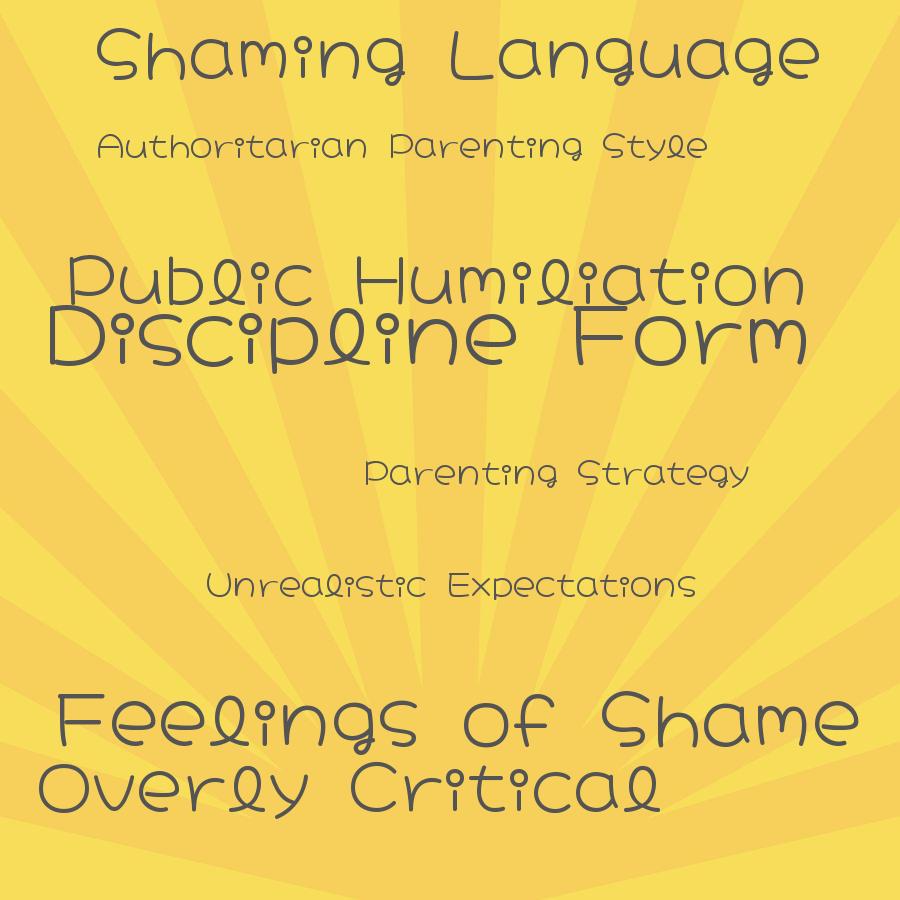The parenting strategy that is most likely to produce feelings of shame in a child is shaming.
As a child, I remember feeling embarrassed and ashamed when my parents would scold me in front of others. It was as if they were telling the world that I was a bad kid who couldn’t do anything right.
Looking back, I realize that their parenting strategy wasn’t the most effective, but it left me with a lasting impression of shame.
As a blogger and parent myself, I’ve always been interested in exploring different parenting strategies and their effects on children’s emotional well-being. And one question that has been on my mind lately is: which parenting strategy is the most likely to produce feelings of shame in a child?
In this article, we’ll take a closer look at this question and explore some common parenting techniques that may unintentionally lead to shame in our children. So buckle up and get ready for an insightful journey into the world of parenting!
Here You Will Learn:
Authoritarian Parenting Style

One parenting style that has been linked to feelings of shame in children is the authoritarian parenting style. This approach is characterized by strict rules, high expectations, and little room for negotiation or compromise.
Authoritarian parents often use punishment as a means of discipline and may be quick to criticize or belittle their child’s behavior.
As I reflect on my own childhood experiences with this type of parenting, I can recall feeling like nothing I did was ever good enough. My parents’ constant criticism left me feeling ashamed and inadequate, even when I tried my best.
Research suggests that children raised under an authoritarian parenting style are more likely to experience low self-esteem and feelings of shame compared to those raised under other styles such as authoritative or permissive. While it’s important for parents to set boundaries and establish rules for their children’s behavior, doing so in a way that fosters open communication rather than fear-based obedience can make all the difference in how our kids perceive themselves.
While there are many different approaches we can take when it comes to raising our kids; understanding which strategies may lead them towards negative emotions such as shame should be at the forefront of every parent’s mind.
Overly Critical and Shaming Language
One of the most common ways that parents unintentionally shame their children is through overly critical and shaming language. This can include using words like “stupid,” “lazy,” or “bad” to describe a child’s behavior, rather than addressing the behavior itself.
I remember one time when I was struggling with math homework, and my dad called me lazy for not understanding it right away. It made me feel like there was something inherently wrong with me, rather than just needing some extra help or practice.
Research has shown that this type of language can have long-lasting effects on a child’s self-esteem and confidence. Children who are consistently criticized in this way may begin to believe that they are incapable of doing anything right, leading to feelings of shame and inadequacy.
As parents, it’s important to be mindful of our language when addressing our children’s behaviors. Instead of using shaming words or labels, we should focus on specific actions or behaviors that need improvement while still affirming our love for them as individuals.
Public Humiliation As a Form of Discipline
One of the most common ways parents unintentionally shame their children is through public humiliation as a form of discipline. As I mentioned earlier, this was something that happened to me frequently as a child and left me feeling embarrassed and ashamed.
Public humiliation can take many forms, from scolding your child in front of others to making them wear embarrassing clothing or accessories. While it may seem like an effective way to teach your child a lesson, it can actually have long-lasting negative effects on their self-esteem.
Children who are publicly humiliated may feel like they’re not good enough or that they’re constantly being judged by others. This can lead to feelings of anxiety and depression later in life.
As parents, we need to remember that our children’s emotional well-being should always come first. Instead of resorting to public shaming tactics when disciplining our kids, we should focus on positive reinforcement and constructive criticism in private settings.
By doing so, we’ll be helping our children develop healthy self-esteem while also teaching them valuable lessons about responsibility and accountability without causing unnecessary harm or shame along the way.
Unrealistic Expectations and Constant Comparison to Others
One of the most common ways parents unintentionally shame their children is by setting unrealistic expectations and constantly comparing them to others. As a child, I remember feeling like I could never measure up to my older sister’s achievements.
My parents would often praise her in front of me, saying things like “Why can’t you be more like your sister?” or “Look at how well she did on her test.” While they may have thought they were motivating me to do better, what it actually did was make me feel inadequate and ashamed of myself for not being able to live up to their expectations. This type of parenting strategy can lead children down a dangerous path where they start believing that their worth as individuals is tied solely to external accomplishments rather than intrinsic qualities such as kindness or creativity.
It also creates an unhealthy sense of competition between siblings or peers that can damage relationships later in life. As parents, we need to be mindful about our words and actions towards our children.
Instead of focusing on comparisons with others, we should celebrate each child’s unique strengths and encourage them based on individual progress rather than arbitrary standards set by society or ourselves. By doing so, we create an environment where our kids feel loved unconditionally without any pressure from us – which ultimately leads them towards becoming confident adults who are comfortable in their own skin!